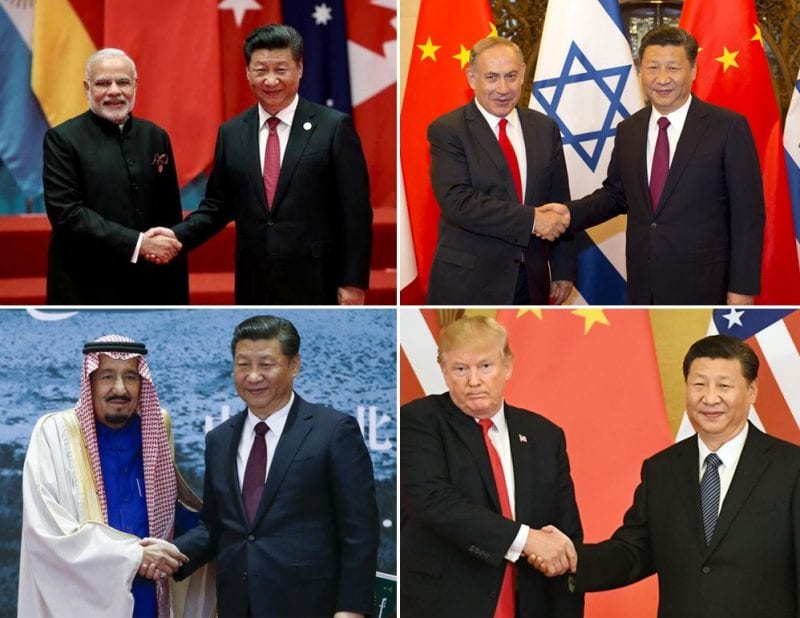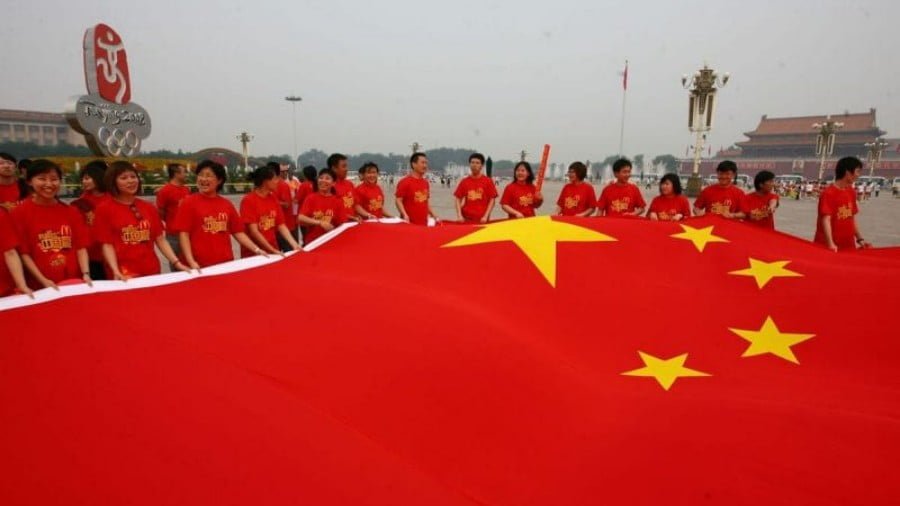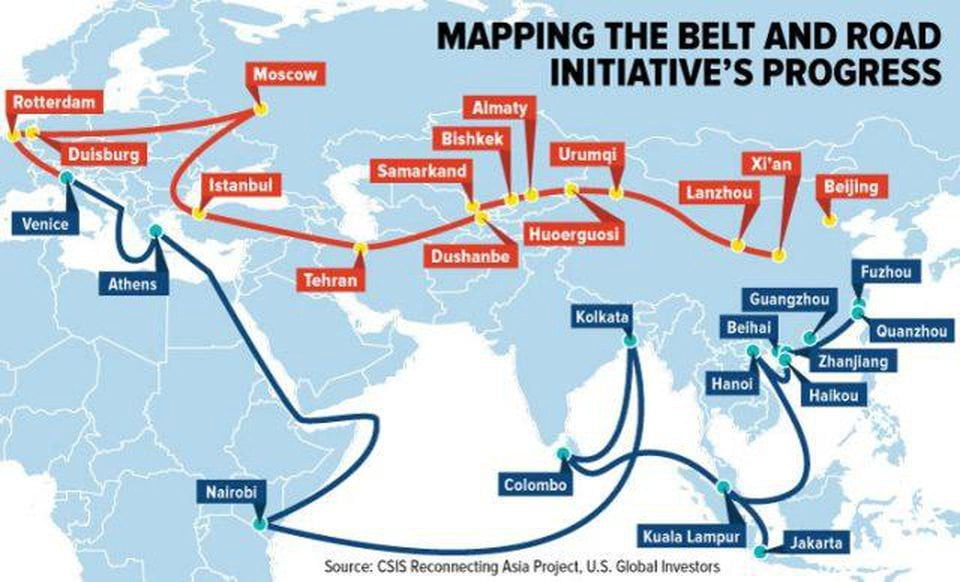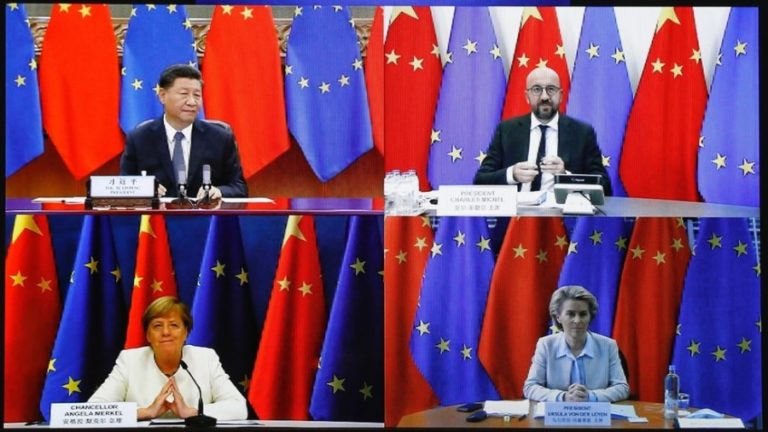The Long Game and Its Contradictions
China has overcome colonial oppression, emerged from “100 years of humiliation”, and is now developing its power on the world stage. Together and along with other formerly colonised nations, through mutually beneficial relationships and a policy of peaceful co-existence, China is building alliances based on strength, to displace Western hegemony, and counter capitalist imperialism, clearing the path toward global communism.
This long term strategy, or at least its first phase, hinges not on orthodox Marxist class struggle, but on quasi-Confucian social harmony, toward the restructuring of global trade.
As this process unfolds, many procedural level contradictions may occur within particular methods and tactics. Some of these are par for the course of being part of a global market dominated by neoliberalism, and of using private entrepreneurship as a tool of development, such as uneven development, wealth inequality, environmental degradation, and labor issues within private business entities. There are also problems which arise from the particular developmental conditions of China: urban coastal areas have experienced faster growth than in-land rural regions, and especially at the unprecedentedly rapid pace: between 1990 and 2018 the number of Chinese people living in extreme poverty was reduced from 750m to less than 10m (Economist).

Other contradictions include those which result from the strict non-interference in the affairs of foreign states, which has characterised Chinese foreign policy for thousands of years, and the prioritising of larger international trade relationships over ideological conflicts. One example is unscrupulous business deals with right-wing or even fascist governments, such as Saudi Arabia or Israel. The “live and let live” ethic of this modus operandi even applies to ideological enemies: China also trades with the biggest terrorist organisation in the world, the USA, without even criticising its long list of illegal wars and heinous crimes against humanity. Another is not supporting local leftist struggles in partner nations, such as guerrilla Maoist insurrections in SE Asia, if it might jeopardise trade relations with state entities. If the temporary “ethical net-losses” of these contradictions lead to larger “net-gains” and positive results in the future, they are calculated as worthwhile or unavoidable.
These myopic and short-sighted “left com” or “ultra-left” types love to denounce modern China as a betrayal of the socialism project, without considering that it is the failure of the Western left to do successful revolutions which made it necessary for existing socialist states to adapt to the global conditions of entrenched neo-liberal capitalism.
The struggle for global socialisation and eventually, communisation, via peaceful trade, rather than violent revolution (at least for now), means that it is in the interest of the CCP to improve conditions for workers, fix labor issues, fight pollution, increase equality, and address uneven development, on its own terms, and according to its plans. But at the same time, grass roots labor movements are not only allowed, but are encouraged. The vast majority of wildcat strikes against private corporations in China are not suppressed, as they are under capitalist regimes. The ones which are suppressed mostly belong to the category of trouble makers with ties to malignant imperialist entities, as part of destabilisation efforts. Social unrest at home is not only dangerous for stability, but hinders China’s ability to beat capitalists at their own game.
It is a long and treacherous game on a grand global chessboard shaped by layers of devastating historical injustice and the cascading chaos produced by exploitative and oppressive processes, and in order to win, relatively minor contradictions and problematic particularities must not obscure or impede the realisation of larger goals.
In 1950, at the birth of modern China and the Communist Party, the average life expectancy was 35. In 1980, at the end of the Maoist era, it had doubled to 70, but the average citizen still lived on less than $1 a day. In every way, the economic program devised by Zhou Enlai, under the leadership of Deng XiaoPing, continued in the direction of Maoist visionary development, while correcting some earlier mistakes. No nation, whether socialist or capitalist, can survive in isolation; and it has been merely 4 decades since the modern reforms which entered China into the international market, embarking China on its present path.
“So, to build socialism it is necessary to develop the productive forces. Poverty is not socialism. To uphold socialism, a socialism that is to be superior to capitalism, it is imperative first and foremost to eliminate poverty. True, we are building socialism, but that doesn’t mean that what we have achieved so far is up to the socialist standard. Not until the middle of the next century, when we have reached the level of the moderately developed countries, shall we be able to say that we have really built socialism and to declare convincingly that it is superior to capitalism. We are advancing towards that goal.” –– Deng XiaoPing

If private property, money, abstract value production, class society, and the state, are abolished prematurely, when the cruel logic and vile power of capital still controls the entire world, China would become vulnerable to both external imperialist violence and internal reactionary sabotage (no doubt under the banner of “democracy”). The Communist Party would be immediately compromised by foreign backed elements; the country might be torn apart once again by civil war, and once again subjected to imperialist domination. The Chinese revolution, what so many millions fought, worked tirelessly, and sacrificed their lives for, will have been for nothing.
Marxism is anything but rigid and dogmatic, and has always been about adapting to the ever changing objective conditions of each era, using whatever is available toward revolutionary goals. The opinion of those baizuo who think that China should have chosen the disastrous course of action described above, or at least remained underdeveloped, poor, and weak, in order to satisfy their fundamentalist interpretation of Marxism, should not be indulged. These myopic and short-sighted “left com” or “ultra-left” types love to denounce modern China as a betrayal of the socialism project, without considering that it is the failure of the Western left to do successful revolutions which made it necessary for existing socialist states to adapt to the global conditions of entrenched neo-liberal capitalism.
Those who think that 1.4 billion people, who for 200 years suffered so immensely under vicious colonial rule and brutal capitalist domination, will so quickly forget what their true enemy is, don’t know much about capitalism, colonialism, or people.
The entrenched and pervasive structures of capitalism took 300 years to build, and the propertarian system of which it is an extension, 6000 years. Its dissolution requires strategies on a scale bigger and longer than is easily conceived or understood by any individual without many years of dedication, and will take more than a few decades to unfold.
Western liberals think in terms of quarterly reports and election cycles. Eastern communists think in terms of centuries, if not millennia.









